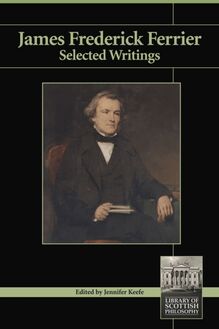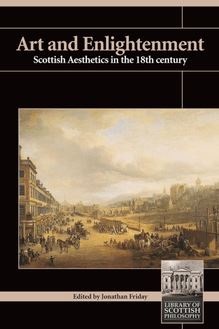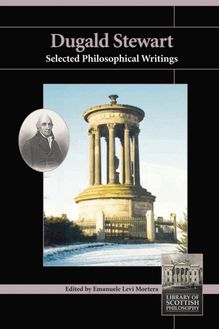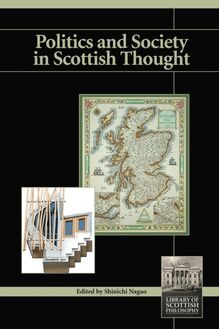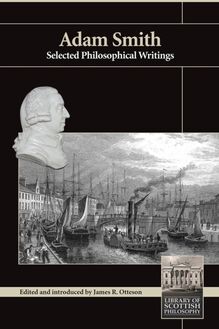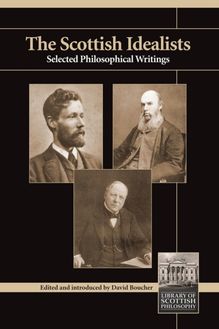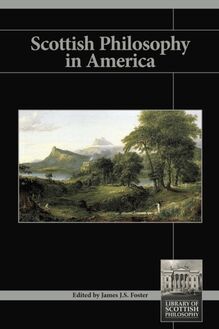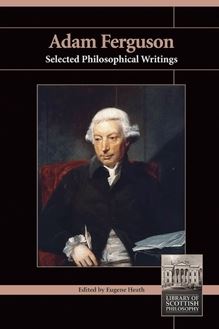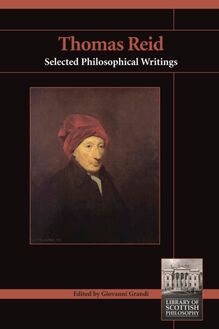-
 Univers
Univers
-
 Ebooks
Ebooks
-
 Livres audio
Livres audio
-
 Presse
Presse
-
 Podcasts
Podcasts
-
 BD
BD
-
 Documents
Documents
-
- Cours
- Révisions
- Ressources pédagogiques
- Sciences de l’éducation
- Manuels scolaires
- Langues
- Travaux de classe
- Annales de BEP
- Etudes supérieures
- Maternelle et primaire
- Fiches de lecture
- Orientation scolaire
- Méthodologie
- Corrigés de devoir
- Annales d’examens et concours
- Annales du bac
- Annales du brevet
- Rapports de stage
La lecture à portée de main
Vous pourrez modifier la taille du texte de cet ouvrage
Découvre YouScribe en t'inscrivant gratuitement
Je m'inscrisDécouvre YouScribe en t'inscrivant gratuitement
Je m'inscrisEn savoir plus
Vous pourrez modifier la taille du texte de cet ouvrage
En savoir plus

Description
Sujets
Informations
| Publié par | Andrews UK |
| Date de parution | 15 mars 2012 |
| Nombre de lectures | 0 |
| EAN13 | 9781845403980 |
| Langue | English |
Informations légales : prix de location à la page 0,0550€. Cette information est donnée uniquement à titre indicatif conformément à la législation en vigueur.
Extrait
Title Page
DUGALD STEWART
Selected Philosophical Writings
Edited and Introduced by Emanuele Levi Mortera
Copyright Page
Copyright © Emanuele Levi Mortera, 2007
The moral rights of the author have been asserted.
No part of any contribution may be reproduced in any form without permission, except for the quotation of brief passages in criticism and discussion.
Originally published in the UK by Imprint Academic
PO Box 200, Exeter EX5 5YX, UK
Originally published in the USA by Imprint Academic
Philosophy Documentation Center
PO Box 7147, Charlottesville, VA 22906-7147, USA
Digital version converted and published in 2012 by
Andrews UK Limited
www.andrewsuk.com
Series Editor’s Note
The principal purpose of volumes in this series is not to provide scholars with accurate editions, but to make the writings of Scottish philosophers accessible to a new generation of modern readers. In accordance with this purpose, certain changes have been made to the original texts:
•Spelling and punctuation have been modernized.
•In some cases, the selected passages have been given new titles.
•Some original footnotes and references have not been included.
•Some extracts have been shortened from their original length.
•Quotations from Greek have been transliterated, and passages in foreign languages translated, or omitted altogether.
Care has been taken to ensure that in no instance do these amendments truncate the argument or alter the meaning intended by the original author. For readers who want to consult the original texts, bibliographical details are provided for each extract.
The Library of Scottish Philosophy was launched at the Third International Reid Symposium on Scottish Philosophy in July 2004 with an initial six volumes. Attractively produced and competitively priced, these appeared just fifteen months after the original suggestion of such a series. This remarkable achievement owes a great deal to the work and commitment of the editors of the individual volumes, but it was only possible because of the energy and enthusiasm of the publisher, Keith Sutherland, and the outstanding work of Jon Cameron, Editorial and Administrative Assistant to the Centre for the Study of Scottish Philosophy.
Acknowledgements
Grateful acknowledgement is made to the Carnegie Trust for the Universities of Scotland for generous financial support for the Library of Scottish Philosophy in general, and to George Stevenson for a subvention for this volume in particular. Acknowledgement is also made to the University of Aberdeen Special Libraries and Collections for the engravings for the cover of this volume of the Edinburgh Faculty of Advocates and of Leith Harbour from Modern Athens (1829).
Gordon Graham,
Aberdeen, July 2004
Introduction
When in 1772, at only 19, Dugald Stewart was appointed assistant professor to his father Matthew in the chair of Mathematics in the University of Edinburgh, he began a career which would confirm him, in subsequent years, as one of the most influential academics in the eighteenth and nineteenth-century European ‘Republic of Letters.’ Both Stewart’s contemporaries and modern scholars have recognised the impact his influential figure had over many young minds. Indeed, in accordance with the broad educational perspective that characterised the intellectual context of his age, Stewart was persuaded that only through an intellectual and liberal education could one become ‘happy as an individual, and an agreeable, a respectable, and a useful member of society.’ 1 Stewart spent the majority of his life between the walls of a college: he was professor of mathematics from 1772 to 1785 and then, as successor to Adam Ferguson, professor of moral philosophy until 1810 when he retired from University. The last twenty years of his life, until his death in 1828, he dedicated to writing the greater part of his published works. But Stewart was also a restless man who moved houses many times, travelled incessantly throughout Great Britain, visited France four times, and encountered the same difficulties that any family man would. He was a loyal Whig in politics and, for this reason, was accused of sympathising with the French Revolution, an accusation which caused him trouble both in his professional and private life. 2 His actual life, therefore, does not correspond to the traditional and rather limited image of a “good professor” which has often been handed down.
Stewart was one of the leading figures of the Scottish Common Sense school, a name by which we are used to identifying the philosophical tradition headed by Thomas Reid and comprising philosophers such as James Beattie, Thomas Brown, William Hamilton and James Ferrier. The philosophy of common sense represents the first systematic answer to scepticism arising from the ‘way of ideas’; an answer that appeals to universal and intuitive principles of knowledge independent of experience. In the nineteenth century John Stuart Mill referred to this philosophical tradition as the ‘intuitionist school,’ particularly in order to launch his attack on its religious and moral implications, but also including under this title thinkers such as William Whewell. Yet, while the common sense philosophers shared a common commitment to the solution of certain crucial philosophical problems in the development of the philosophical debate, each furnished different and unique answers to those problems. Because of this differentiation the philosophy of common sense cannot be considered a monolithic phenomenon in the history of ideas.
A useful exposition of Stewart’s thought can be found in his Outlines of Moral Philosophy , written as a textbook for his students and published in 1793. Here, he offers a synthetic description of the method and purposes of what he calls philosophy of the human mind. According to Stewart, this is the new metaphysics, designed to replace the old metaphysics of causes and occult qualities and to investigate, instead, the general laws of human nature according to the inductive criteria of experimental philosophy. Moreover, Stewart singles out the proper subjects of moral philosophy, distinguishing between the study of man’s intellectual and moral powers, and the study of man as a member of a political body. The first of this three-part system is dedicated to the analysis of the faculties of the human mind, to the principles of knowledge and types of evidence, to themes connected with language, taste, and the differences between humans and animals. The second and longest part is dedicated to ethics, and the third, though only hinted at, to the principles of politics. Stewart wrote extensively on the first part in the three volumes of his Elements of the Philosophy of the Human Mind (1792, 1814, 1827), and on the second in the two volumes of his Philosophy of the Active and Moral Powers of Man (1828). The third part appeared posthumously in two volumes of Lectures on Political Economy (1856), collected by Sir William Hamilton and based on Stewart’s University lectures given between 1800 and 1809. His Philosophical Essays (1810) may be considered an independent but fundamental work concerning metaphysics and aesthetics. His biographical sketches of Adam Smith (1793), William Robertson (1796) and Thomas Reid (1803), the three parts of his Dissertation: exhibiting the Progress of Metaphysical, Ethical and Political Philosophy since the Revival of Letters in Europe (1815, 1821 and, posthumously, 1854,) and a few other less known works are not to be properly considered a part of his philosophical ‘system’, notwithstanding their influence on the subsequent European circulation of ideas.
However, it is the philosophy of mind, as the science of first principles, that must precede all the other sciences, included Moral philosophy. Many of the topics Stewart himself singles out as the proper objects of moral philosophy, really should belong to the philosophy of mind in general, notwithstanding the traditional wide range of subjects which moral philosophy covered at the time in which Stewart wrote. It is thus necessary to distinguish between moral philosophy—the counterpart of natural philosophy and one of the core disciplines of the university curriculum of the time—and the philosophy of mind as a kind of ‘meta-science’ to which all the other branches of philosophy should refer.
The selection here presented departs in some ways from Stewart’s own division of the subject, which would have been the most reasonable choice to follow. Instead, this sequence aims to reflect the logical priority of each discipline, a priority which Stewart himself seems to give in the internal development of his ‘system’.
I
The great object of the philosophers of the Scottish Enlightenment was the construction of a science of man, aimed at tracing the general principles or laws of human nature according to the criteria of experimental philosophy. The most renowned attempt of this kind is to be found in Hume’s Treatise of Human Nature , where the study of human nature is considered preliminary to that of other sciences, and is compared to a citadel to be conquered in order to attain a general and clearer view of them 3 . Neither Thomas Reid, the most profound of Hume’s opponents, nor Reid’s most brilliant pupil, Stewart, had ever thought to call Hume’s claim into question. Rather, Stewart significantly elaborates this claim through an eloquent geographical metaphor:
When our views are limited to one particular science…the course of our studies resembles the progress of a traveller through an unexplored country
-
 Univers
Univers
-
 Ebooks
Ebooks
-
 Livres audio
Livres audio
-
 Presse
Presse
-
 Podcasts
Podcasts
-
 BD
BD
-
 Documents
Documents
-
Jeunesse
-
Littérature
-
Ressources professionnelles
-
Santé et bien-être
-
Savoirs
-
Education
-
Loisirs et hobbies
-
Art, musique et cinéma
-
Actualité et débat de société
-
Jeunesse
-
Littérature
-
Ressources professionnelles
-
Santé et bien-être
-
Savoirs
-
Education
-
Loisirs et hobbies
-
Art, musique et cinéma
-
Actualité et débat de société
-
Actualités
-
Lifestyle
-
Presse jeunesse
-
Presse professionnelle
-
Pratique
-
Presse sportive
-
Presse internationale
-
Culture & Médias
-
Action et Aventures
-
Science-fiction et Fantasy
-
Société
-
Jeunesse
-
Littérature
-
Ressources professionnelles
-
Santé et bien-être
-
Savoirs
-
Education
-
Loisirs et hobbies
-
Art, musique et cinéma
-
Actualité et débat de société
- Cours
- Révisions
- Ressources pédagogiques
- Sciences de l’éducation
- Manuels scolaires
- Langues
- Travaux de classe
- Annales de BEP
- Etudes supérieures
- Maternelle et primaire
- Fiches de lecture
- Orientation scolaire
- Méthodologie
- Corrigés de devoir
- Annales d’examens et concours
- Annales du bac
- Annales du brevet
- Rapports de stage
